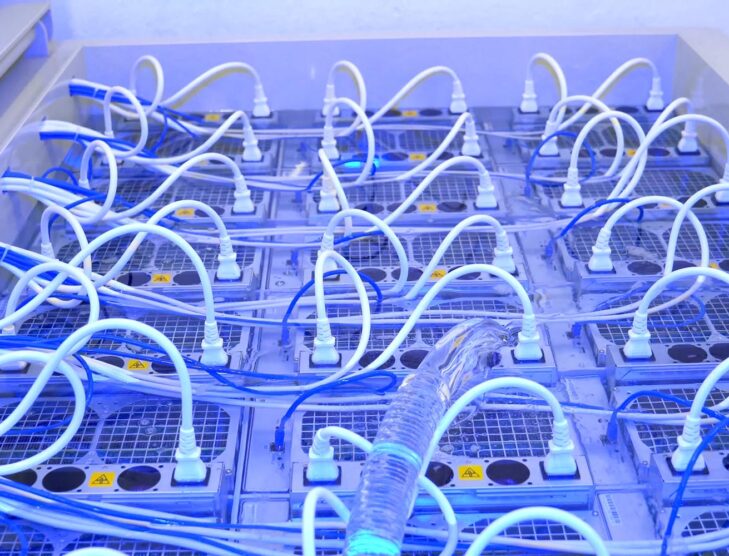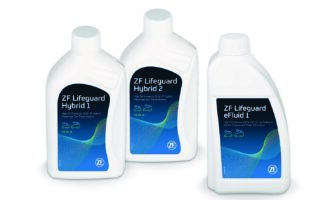
Cargill launches plant-based dielectric immersion cooling fluid
Cargill has launched NatureCool 2000 fluid, the first plant-based dielectric immersion cooling fluid globally for use in data centers, cryptocurrency mining and other advanced applications that allows for a more sustainable and efficient way to cool electronic systems.
“Immersion cooling is the new frontier of technologies that allows for more efficient, higher performing systems that also help make the IT industry more sustainable,” said Kurtis Miller, managing director of Cargill’s Bioindustrial business. “In just the last 10 years, data center power usage has increased from several hundred kilowatts to several hundred megawatts, an over 1,000 times increase. As chip density continues to rise and the amount of data generated seems endless, we need to find more efficient and sustainable ways to operate these complex systems.”
Cargill’s fluid, made from more than 90% vegetable oil plus performance-enhancing additives, allows for more than 1,000 times more cooling capacity and up to 60% less energy usage compared to conventional air cooling. The fluid is CO2 neutral, with a Global Warming Potential (GWP) of zero.
According to Cargill, NatureCool 2000 has a 10% higher heat capacity than leading synthetic immersion cooling fluids, making it higher performing. It also provides a superior level of fire safety with a very high flash point of 325°C, the company said. Unlike synthetic fluids, NatureCool fluid does not self-ignite and flames out after the heat source is removed, it said.
As the generation and use of data continues to grow exponentially, more data centers and cryptocurrency mining centers that use massive amounts of power are needed. Data centers account for nearly 3% of the global electricity used and more than 2% of total greenhouse gas emissions, as much as the carbon footprint generated by the entire airline industry. As these businesses look for ways to reduce their energy use and support corporate social responsibility goals, they are turning to immersion cooling methods to replace conventional air-cooling systems. In addition to data centers, this technology can be applied to electric vehicle (EV) charging stations and other complex electronics.
Compared to conventional air cooling with HVAC systems, immersion cooling submerges servers in a bath of non-conductive liquid, allowing thermal heat generated by the computer components to be transmitted into the fluid and cooled. This method greatly reduces energy use, extends the life of the equipment, supports higher chip densities and lowers the overall operating cost.
A privately held global food corporation based in Wayzata Minnesota, U.S.A., a Cargill subsidiary last year agreed to purchase the majority of Croda International’s Performance Technologies and Industrial Chemicals (PTIC) businesses. When the purchase was announced, Colleen May, president of Cargill’s Bioindustrial business, stated the importance of the bioindustrial space for Cargill, “as we strive to support our customers with innovative, nature-based solutions that deliver real world benefits. Combining our diverse, global supply chain and deep operational expertise with Croda’s extensive industrial business capabilities and broad bio-based portfolio will spark a new wave of innovation and create tremendous value for our customers.”
The sale was completed in July 2022.









